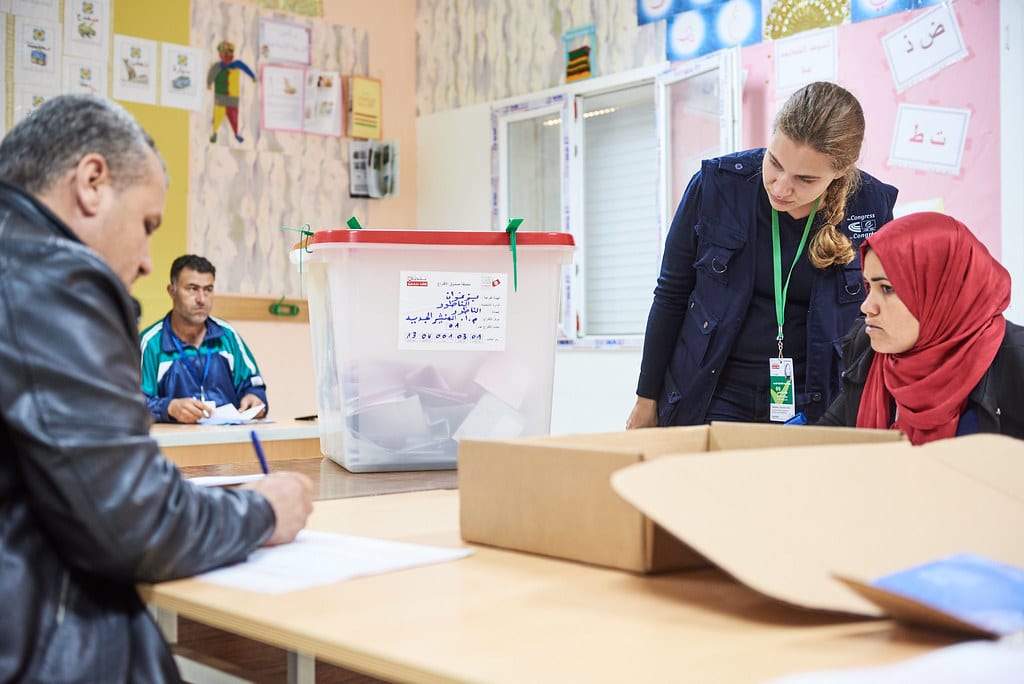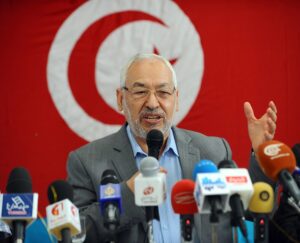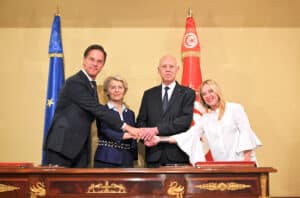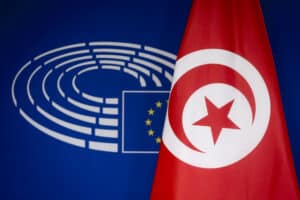The Independent Higher Electoral Authority (ISIE) announced that Independent candidate Kaïs Saïed has defeated Nabil Karoui in Tunisia’s presidential election runoff. Saïed received 72.71 percent of the votes, defeating Karoui, who received 27.29% of the votes, with ease. The conservative Saïed was backed by a large part of the Tunisian parties, even progressive parties chose to support him instead of Karoui, with the latter being connected to corruption and money laundering scandals. The runoff round of the election was the third and latest election in four weeks, still the turnout was the highest of all three, reaching above 55 percent according to the ISIE. Some Tunisians even organized car-sharing and free transport for students who had to cast their vote in their remote hometowns. “I am doing it out of love for my country. I support the one who embodies hope for Tunisia,” said taxi driver Bakri who offered free rides to Saïed supporters between Tunis and the coastal city of Nabeul. Supporters of Saïed celebrated into the morning, hailing the victory as a revival of the 2011 revolution. “What I have done is a new revolution,” Saïed told a crowd gathering at his home in the Mnihla district on the outskirts of Tunis. “I tell Tunisians that you have impressed the world.”
Election
The election was characterized by discontent among voters concerning the ruling elite, with two anti-establishment candidates, Kais Saïed and Nabil Karoui, progressing to the second round. Karoui was released from prison only two day priors to the elections, after he was jailed on corruption and money laundering charges. The pair squared off in a rare television debate on Friday evening in which Saied addressed the audience in classical Arabic while Karoui, speaking in the local dialect, propounded his campaign’s ambitious promises to help the poor. Saïed is popular among younger voters, with 90 percent of the people between 18 to 25 casting their vote for the conservative lawyer according to Sigma polling institute. His campaign has been supported by several youth organizations, who surprisingly see the conservative candidate as the only way to counter the ruling elite. On top of that, many political parties supported Saïed in the second round, with only one party, Amel Tounes, supporting Karoui, apart from his own Qalb Tounes.
Saïed’s agenda
Saïed is most vocal about implementing a more direct form of democracy in Tunisia, shifting power from central to local authorities. Moreover, Saïed is considered to be a social conservative, expressing support for reinstating the death penalty, condemning homosexuality and vowing to limit the work of foreign NGOs in Tunisia. Some argue that the radical reforms proposed by Saïed could be impossible to achieve, most of them would require a two-third majority in parliament. This will be difficult to come by in the splintered parliament. His campaign is focused on domestic subjects, while the president is mostly responsible for foreign policy and defense. Concerning foreign policy, Saïed has been vocal in his support for the Palestine state, making the Palestine cause one of his priorities. Still many voters are left in the dark about his vision and aims, with many choosing him for his ‘trustworthiness’ while lacking a clear program.
Reactions
Losing candidate Karoui announced that he will take place in the opposition, but will support initiatives that are in line with his electoral program. Karoui was dissatisfied with the conditions under which the presidential elections had taken place. Stating that the election could not be described as a ‘bright’ event following abuse and harassment including his imprisonment for almost 50 days. Karoui blamed the major gap in the second round between him and winner Saïed on the unequal conditions during the campaigning period. Karoui announced that he wouldn’t appeal the official results, although he condemned the circumstances under which the electoral campaign took place.
Vice-President of the Islamic Ennahda party, Abdelfattah Mourou, congratulated Saïed after his win. Though he immediately urged Saïed to clarify his intentions, and present a complete project with mechanisms that can achieve the change proposed by Saïed. Ennahda’s president, Rached Ghannouchi, claimed he already spoke with Saïed, who expressed his desire to cooperate with the Ennahda movement.
Difficult months lie ahead
The victory of Saïed highlights the citizens’ demand for change, electing an unorthodox candidate who has no connection with the previous political elite. Furthermore, a conservative academic with minor campaigning winning over a rich business owner with all kinds of power is quite unprecedented., It shows that the Tunisian democracy is ahead of other states in the region. Saïed is now tasked with delivering on his promises, which could be difficult given the fragmentation of the legislative chamber. The negotiation process to form a government will probably take months, with some experts even deeming new elections after months of negotiations the most likely option. His position as independent candidate could help bring together political parties, possibly in a government of national accord. On the other hand, his independent position could prove it difficult to push through his proposed reforms. Like his idea of the transfer of power from the central to the local authorities, which would require a two-third legislative majority. Without a party backing his proposals and looking for support in the legislative chamber, Saïed’s administration will face difficulties in fighting corruption and the current political system. That was the main promise of the conservative candidate, whom many Tunisians expect to bring long awaited change in the political system heavily influenced by the ‘corrupt’ political elite.
Sources: France24 TAP1 Guardian Businessnews TheNational



